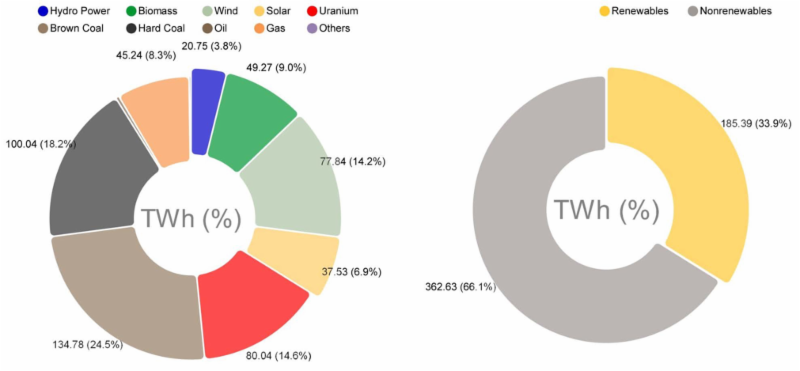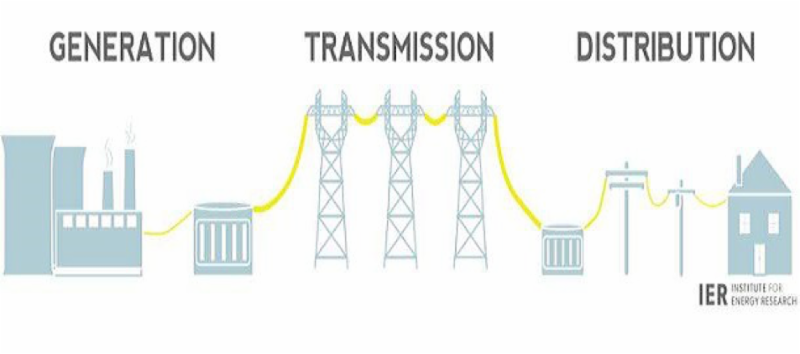By Olufemi Femi Aduwo
If all major countries are looking to move away from fossil fuel and hydro carbons, what is our next strategic move in Nigeria? Yes, there has been talk that this transition will not happen in the next five to 10 years and that there are currently no electric cars/engines that can replace the fleet of trucks, earth-moving equipment, military equipment, trains and ships, but 20 years flies by very quickly and let's not forget that Elon Musk has hinted that a Tesla truck is 'quite likely' in the future.
As Nigeria, if we say that we still have an abundance of oil that we will use and that we will use our fuel for local consumption – which could be a good thing for the short to medium term, because even if manufacturing countries like UK, France and China stop the manufacture of fossil-fueled cars by 2040, there will still be a large percentage of fuel-powered cars that would need fuel - who then would we will refine for us, who will manufacture the fuel refining equipment, nuts and bolts, and other equipment we will use? Let's not forget that oil is used for many things other than powering cars. Diverse industries including cosmetics, medical, packaging, electrical and chemical will continue to rely on refined oil; meaning the demand never goes away.
It is critical and interesting to note that countries are not all going the same way. While countries like India, Germany and the rest of Scandinavia are going the electric/renewable energy route, US is developing its own shale oil/fracking independence, with President Trump himself clearly showing his lack of belief in the climate change story (reinforced by his budget cutting for all related matter to the apex body for trans-continental peace and unity, the United Nations). The important thing is that they have a vision, a goal – including finance, climate change mitigation, world domination – to achieve and they set off with a game plan.
My point is that at the old age of 57, scenario planning is ever more crucial for Nigeria and it is (will be shocking) if Nigeria and certain aspects of its leadership is still banking on oil exploration as our major source of revenue for any longer than 20 years. How can we build competencies that would make us a leader in something other than digging out a freely gotten resource? What are solid steps towards refining the oil for diverse industries beyond automobiles? Is there a place for mining and refining resources required for manufacturing? Is there opportunity for gas? How can our industries develop and work together cohesively?
But, wait a moment here. How do we build the industry to back any grandiose vision for sustained development when the backbone for industrialisation – power generation – is lacking? In order to do these things, we need good and steady supply of electricity, right? For instance, word on the street is that users of Sahara Energy of Nigeria's hybrid-fuel and electricity cars – a fantastic initiative of Sahara, by the way - dare not recharge their cars at their homes for fear of damaging either car or their paltry source of power. The cars have to be recharged under controlled, specially powered office electricity.
In essence, whether we want to develop micro industry – a barber's shop, a mama-put centre, technology hubs – or mega industry - develop our own supplies of cars and other technology powered by renewable sources, build IT mammoths of industry, produce power for sale or build state-of the-art refineries - stable and consistent power generation is necessary; especially through safe energy-mix sources.

Net generation of power plants for public power supply. (Graphic: Prof Bruno Burger, Fraunhofer Institute for Solar Energy Systems ISE: 50 Hertz, Amprion, Tennet, TransnetBW, Destatis, EEX
Last update: 07 Oct 2017 09:28)
There are a few quick adjustments we can look at as a nation. As I was taught at Harvard, the challenges many countries, governments and leaders, face are technical and adaptive. Our major technical challenge with our current electricity generation infrastructure is the inefficiency of our transmission. We have privatised electricity generation companies (GenCos) and electricity distribution companies (DisCos) but have left electricity transmission (TransCos) in limbo.

Source: http://sparkonline.com.ng/2017/01/understanding-the-nigerian-power-sector-gencos.html
One cannot say categorically that this privatisation of generation and distribution has been wholly successful, as we still witness stories of remittance of only a fraction of profit to government. However, while government has argued that transmission is far too strategic to hand over to market forces – fearing that they could possibly hijack and ransom the nation at will - there is certainly room for a hybrid organisation, managed by both government and efficient business; partnered through a transparent procurement process.
If government and business deal with technical, it behoves the general citizenry to pay their dues; a major headache of discos. Unfortunately, this unbecoming disregard for the contractual handshake with discos cuts across different socio-economic groups; from Ajegunle to Lekki, from Ikeja GRA to Awoyaya. This has to change.
We can also incentivise renewable energy solutions which would put power generation in the average man's hands. We are blessed with an abundance of solar, biomass, sea, and almost any God-given renewable resource imaginable. If in Germany of 2016, renewable sources account for 33.9% of the net electricity production, a leap from 2012 supply where all renewable energy accounted for 21.9% of electricity, with wind turbines and photovoltaic (solar) providing 11.9% of the total – why then can we not put to good use, our lovely scorching sun and sea this side of the Sahara?
Many nations – Australia, Brazil, China - have developed national and state incentivisation policies to reduce greenhouse gas emissions (GHGs) to address climate change; a noble thing to do for generations to come. I especially love Australia's Small-scale Renewable Energy Scheme (SRES); a system that works with households to purchase and set up a small renewable energy system at home. These household owners can then sell the energy they produce or even earn credits by reducing overall energy consumption. If we are looking for a less altruistic reason other than unborn generations, we can at least see the promotion of renewables as a means of generating jobs and income. In 2010 alone in Germany – the world's first major renewable energy economy" - some 370,000 people were employed in the renewable energy sector, especially in small and medium-sized companies.
We can dream big Nigeria; after all, but for dreamers like Harriet Tubman, the Moses of her people, and Frederick Douglass, the first black Marshall who took those first steps, many slaves in 18th century America never dreamt they would one day be free men, talk less of President. We just need to 'power' our dreams, through focus, key stakeholder engagement, a holistic, cross-functional and measurable national plan, and of course, consistent power supply.
No comments:
Disclaimer: Opinions expressed in comments are those of the comment writers alone and does not reflect or represent the views of Voxpopuli
Post a Comment